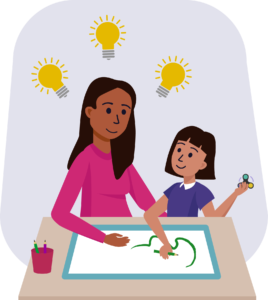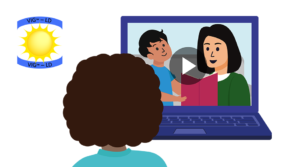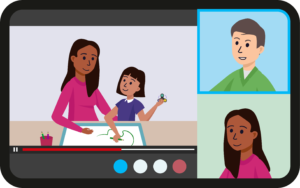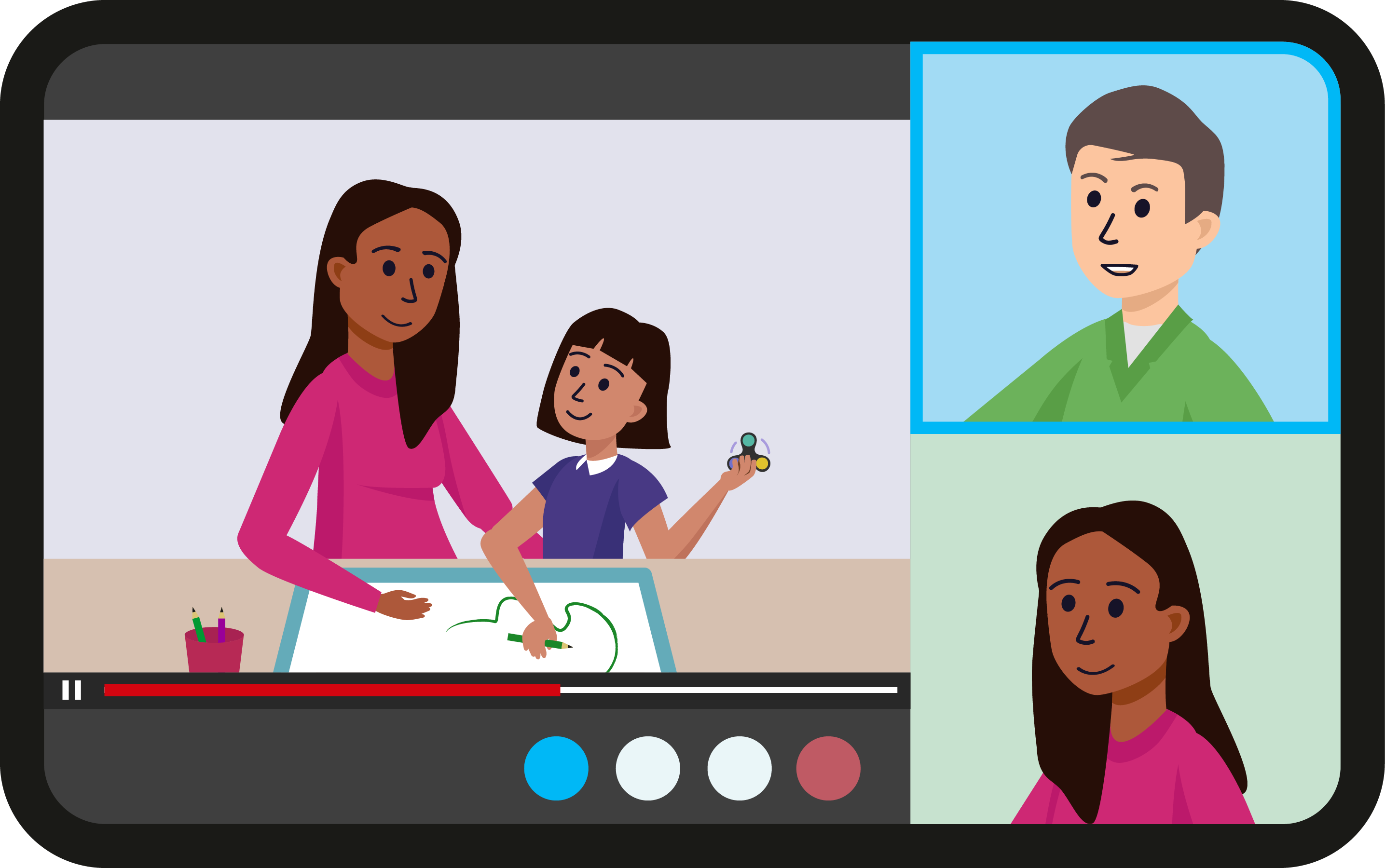
What is Video Interaction Guidance?
Video Interaction Guidance is a way of looking at how a parent interacts and communicates with their child. A VIG therapist works with parents to look together at videos of successful, positive moments between them and their child. Parents are supported to reflect and notice what they are doing that is making a difference in the way they are interacting with their child. Support is personalised for each parent.
Here is a short video about VIG for more information.
What was the study about?
The study wanted to find out if VIG could be offered over the internet (remotely) to parents whose child with a learning disability had been referred to specialist mental health services.

VIG is not typically offered in specialist mental health services. Many services have been considering offering VIG, so this study was important in understanding whether remotely offered VIG was acceptable to parents, whether they found it helpful, and whether further research into VIG was possible.

How was VIG delivered remotely?
Instead of meeting at home or at the clinic, a VIG practitioner met with parents on a video call and took a short recording of the parent and their child. The following week, the therapist and parents would watch the recording together and talk about it. This would happen 3-5 times.
What happened in this study?
The research team collaborated with several specialist mental health services in England. These services invited parents who have a child aged 6 – 12 years old with a learning disability, who had been referred to their service, to take part in the study.
Data was collected at three points throughout the study: parents provided information about themselves and their child by filling in a survey and by doing a brief interview with a researcher.
Parents were randomly assigned to one of two groups: one group was offered VIG plus the usual support their service would provide, and the other group just received their usual support.
To find out more about the study, you can read an article produced by the VIG research team, available here.
Members of the VIG-LD Parent Carer Advisory Group (PCAG) put together a recruitment video (available here), which explains the methodology of the VIG-LD study. Please note that recruitment is now closed, and you should not contact the study team to take part.
What support do children and young people with learning disabilities receive?
In 2024, the VIG-LD research team published a report looking at interventions and supports currently offered by specialist mental health services to children with a learning disability and their families. This article was co-written by members of the VIG-LD research team and parent carers from the VIG-PCAG. The report was designed to help understand what is usually offered to children and young people with a learning disability, and whether any video-feedback interventions were already being offered.
Results showed that a minority of services made regular contact with children during the referral stage, or whilst children were on the waiting list. Additionally, the report identified that, whilst most services offered psychoeducation to parents whose children were on an active caseload, a minority of services (about 36%) did not offer any specific interventions to children or families on the active caseload in the preceding 12 months. This report highlights that, with long waiting times for specialist mental health support, these services need to increase the amount of contact and support they offer throughout all stages of a child’s journey with the service.
You can read the full paper here.
Co-production
Parent carers played a crucial role throughout the research. Parent carers ensured that the research team created accessible materials and measured areas that were important to families. Parent carers made suggestions on the analysis of the findings and guided the research team throughout key decisions. Members of the PCAG collaborated on writing multiple research papers, as well as recruitment and dissemination videos. The Challenging Behaviour Foundation recruited and supported the parent carer advisory group and inputted to the Study Management Group.

